Introduction of Tort Vs Contract
Important Point
- A tort, in common law jurisdiction, could be a tort (other than a breach of contract) that causes an applicant to suffer loss or hurt, leading to legal liability for the one that commits the act.
- It will embrace intentional infliction of emotional distress, negligence, money losses, injuries, invasion of privacy, and so on.
- A contract is termed as a document which is done by law and completed between two individual parties. A contract is lawfully enforceable as a result of it meets the wants and approval of the law.
- A contract includes many different things to concern, it may be exchanges of product, money, service, etc.
Also, Read: What Is Soil Vent Pipe | How Does Soil Stack Pipe Works | Soil Vent Pipe Material | Types of Plumbing System
What Is Tort?
- A tort is totally opposite character from the contract. A tort is a wrong act which requires legal action.
- It additionally suggests that Associate in a Nursing act that infringes on one’s rights aside from once it’s beneath a contract.
- As per common legal jurisdictions, wrongful conduct is taken into account civil wrongdoing that’s expected to or believed to own caused the applicant hurt or loss.
What Is Contract?
- The term contract is employed to sit down with a promise or a group of an equivalent that may be implemented lawfully if any of the parties concerned violates them.
- It enforced that party who got affected to go for legal action. The contract is the mutual agreement of two parties in the contract, it is provided by the Anglo-American common law.
- Most contracts need formalities, as an example, sign language and getting into a date once the contract was signed. However, some contracts are often binding albeit they’re oral.
- An agreement between 2 personal parties that makes mutual legal obligations. A contract is maybe oral type or written type. However, oral contracts area unit tougher to enforce and may be avoided, if doable.
Difference Between Tort and Contract
The main difference between contract and wrongful conduct area unit which is termed as Tort as expounded below:
#1. Meaning of Contract and Wrongful Conduct
A contract suggests that a promise or set of guarantees that the law will or can enforce if Associate in Nursing natural event arises whereas wrongful conduct suggests that a set of legal remedies that entitle an affected party to endure losses, injuries, or damages.
Tort covers the damaged part of the contract which is created by any party, it maybe the result of omission, any wrong statement, any wrong action etc.
#2. Rights
It is basically common the act of agreement between two parties if there is some wrong appearance.
In that position, the court takes it into its own hand and applies the common law to fix it.
#3. Duties
In legal philosophy, the parties mainly confirm the duties whereas, in wrongful conduct, the law determines the duties.
This suggests that the parties will commit to be or not be certain beneath the contract, however, they can’t select whether or not they are certain beneath the law or not.
Also, duties in contract area unit ordinarily towards definite or specific persons whereas duties in wrongful conduct area unit typically owed to persons or community at giant.
Also, Read: Fish Ladder | What Is Fish Ladder | Types of Fish Ladder | Fish Ladders in Dams
#4. Minors
A minor is often created chargeable for their torts, however, they’re restricted in liability once it involves a contract. this suggests the minor are often sued beneath torts and also the damages are paid from their property.
#5. Privity
In tort, privity doesn’t exist neither is it required as a result of hurt is usually done against the blistered party’s can.
On the contract’s aspect, privity should exist which implies the parties concerned have to be compelled to be lawfully guaranteed to one another.
#6. Damages+
Tort law covers the damages in some restricted area. It may be disrespectful things or unliquidated things but contract law covers up liquidated damages.
#7. Limitation Amount
In torts, the limitation amount can run from the time the injury was done whereas, in contract, the amount runs from the day date the contract was broken.
What Is Contract Law?
Contract law is the legal agreement where it clarifies all the necessary actions such as personal rights, personal obligations, etc. This law protects the parties not to break the legal rule.
In general, this law falls into 3 categories:
- Offer,
- Acceptance
- Consideration.
#1. Offer
- One Party must make a proposal and state the terms they require and the other party to comply with.
#2. Acceptance
- Accepting other party’s offer makes a contract complete.
#3. Consideration
- A valid contract requires each party to provide something up. This is known as consideration.
Also, Read: How to Calculate Cutting Length of Stirrups in Beam and Column
What Is Tort Law?
Tort law is the law which covers most of the civil suit. Sometimes it damages the financial condition that’s why Tort law is here which is controlled by the court.
The first intent of misconduct is to supply full compensation for tried harms.
In general misconduct, the law falls into 3 categories:
- Intentional Torts
- Negligence
- Strict Liability
#1. Intentional Torts
- Intentional misconduct is once a personal or entity advisedly engages in conduct that causes injury or injury to a different. as an example, placing somebody in ( an exceedingly|in a very ) fight would be thinking about an intentional act that will make up the misconduct.
- Although it should look like associate degree intentional misconduct will be categorised as a criminal case, there are vital variations between the criminal offence is the wrongful act which harms the interest of society.
- International torts are wrongful act because it harms someone’s property.
- Whereas criminal charges are brought by the govt. and might lead to a fine or jail sentence, misconduct charges are filed by a litigator seeking financial compensation for damages that the litigant should pay if they lose. typically a wrongful act is also each a criminal and misconduct case.
Examples of Intentional Torts
- Assault
- Trespass
- Slander
- Conversion
- Intentional harassment
- Fraud/deceit
- Battery
- False imprisonment
Also, Read: What Is Plumbing Joint | Types of Plumber Joint | Different Types of Pipe Joints and Where Are Use
#2. Negligence
- Failure to stick to those standards is understood as negligence.
- Negligence is out and away from the foremost common sort of misconduct.
- The most typical samples of negligence torts are cases of slip and fall, that occur once an owner fails to act as an inexpensive person would, so leading to damage to the visitant or client.
Examples of Negligence Torts
- Slip & fall accident(including various types of an accident)
- Medical malpractice
- Negligence of torts
#3. Strict Liability
In another way, Tort means strict liabilities. Liabilities cover the injuries which do not prove any negligence that means direct fault.
- Another sample where liability does not maintain properly is a defective product.
- In lawsuits like these, the burned shopper solely needs to establish that their injuries were directly caused by the merchandise in question so as to own the law on their facet.
- The very fact that the corporate didn’t “intend” for the patron to be burned isn’t an element.
Example of Strict Liability Torts
- Any dangerous activities
- Any kind of animal attacks
- Defective product which is another example of product liability
Also, Read: Difference Between Tied Column and Spiral Column | What Is Spiral Column | What Is Tied Column |
Difference Between Tort and Contract
Additionally, in the case of torts, the duty that is violated is a duty that is imposed by law and owed to everyone. Whereas, in contract law, the duty violated is fixed from the consent of the parties and is only owed to the parties mentioned in the contract.
Tort and Contract Difference
Contract Law vs Tort Law
The easiest way to differentiate between a breach of contract and a tort is to remember that contract law governs the drafting and enforcement of agreements between parties, while tort law dictates how parties who have not entered into an agreement relate.
Difference Between Tort and Breach of Contract
A tort is a violation of a right in rem i.e., a right vested in some particular individual and available against the public at large. A breach of contract is a violation of a right in personam i.e., a right available against some particular person or party.
How Are Contract Law and Torts Related?
Contract law deals with how a valid, enforceable contract is formed and what should happen if the parties to the contract fail to perform as promised. Tort law deals with the duty of care that the law imposes on all of us and what happens when we breach that duty and cause personal injury and property damage to others.
Tort Contract
Lawsuits involving contracts fall under contract law. Tort law requires those who are found to be at fault for harming others to compensate the victims. Typical harms include the loss of past or future income, payment of medical expenses, and payment for pain and suffering.
Difference Between Tort and Torts
Law of tort and law of torts, the difference lays in the concepts. The former has a broader scope where all the wrongful acts backed by legal justification can be brought into action, whereas the other one has a limited scope which restricts the actions to be brought under certain specified torts to seek remedy.
Difference Between Torts and Contracts
The main differences between torts and contracts are as follows:
- Nature of the Legal Relationship
- Source of Obligations
- Types of Harms
- Remedy
- Voluntary vs. Involuntary
The Law of Contract Is Different from the Law of Tort in Which Way?
The law of contract and the law of tort are two distinct areas of law that govern different types of legal relationships and provide different remedies for violations. Here are some ways in which the two areas differ:
- Nature of Relationship
- Basis of Liability
- Standard of Care
- Privity of Contract
- Objective
Torts and Contracts Are Examples Of?
As can be seen, both tort law and contract law are branches of civil law that cover many different types of conduct and relationships.
Tort in Contract Law
The concept of tort law is to redress a wrong done to a person and provide relief from the wrongful acts of others, usually by awarding monetary damages as compensation. The original intent of tort is to provide full compensation for proved harms. Lawsuits involving contracts fall under contract law.
What Is Deceit in Tort?
In tort law, deceit refers to the intentional misrepresentation or fraudulent conduct by one party to another, resulting in harm or damage to the deceived party. Deceit is often associated with the tort of fraud or fraudulent misrepresentation.
Law of Tort
The law of tort, often referred to as tort law, is a branch of civil law that deals with civil wrongs or injuries caused by one party to another. It provides legal remedies to individuals who have suffered harm or loss due to the wrongful actions, omissions, or negligence of others. The purpose of tort law is to compensate the injured party, deter wrongful conduct, and promote a sense of justice.
Tort Law Categories
Tort law is a branch of civil law that deals with civil wrongs or harm caused to individuals or their property. It provides legal remedies to individuals who have suffered harm or injury due to the wrongful acts of others. There are several categories or types of torts recognized in tort law. Here are some common categories:
- Negligence
- Intentional Torts
- Strict Liability
- Nuisance
- Trespass
- Economic Torts
Like this post? Share it with your friends!
Suggested Read –
- Difference Between Marble and Granite | What Is Marble and How Is It Made | What Is Granite and How Is It Made
- What Is Survey Levelling | Important Terms Related to Levelling | What Are Different Types of Levelling | Types of Trigonometric levelling
- Difference Between Primer and Undercoat | What Is Undercoat | What Does Undercoat Paint Do | Why Use Undercoat | Is Undercoat the Same as the Primer
- Definition of Shear Force and Bending Moment | What Is Shear Force | What Is Bending Moment | Relation Between Loading, Shear Force & Bending Moment
- What Is Pad Foundation | Failure of Pad Foundation | Pad Foundation Detail | Types of Pad Foundation | Design of the Pad Footing Depends on Several Factors
- What is Floating Foundation | Suitability of the Floating Foundation | Advantages & Disadvantage of Floating Foundation | How to Build a Floating House Foundation
Originally posted 2023-05-13 19:00:01.
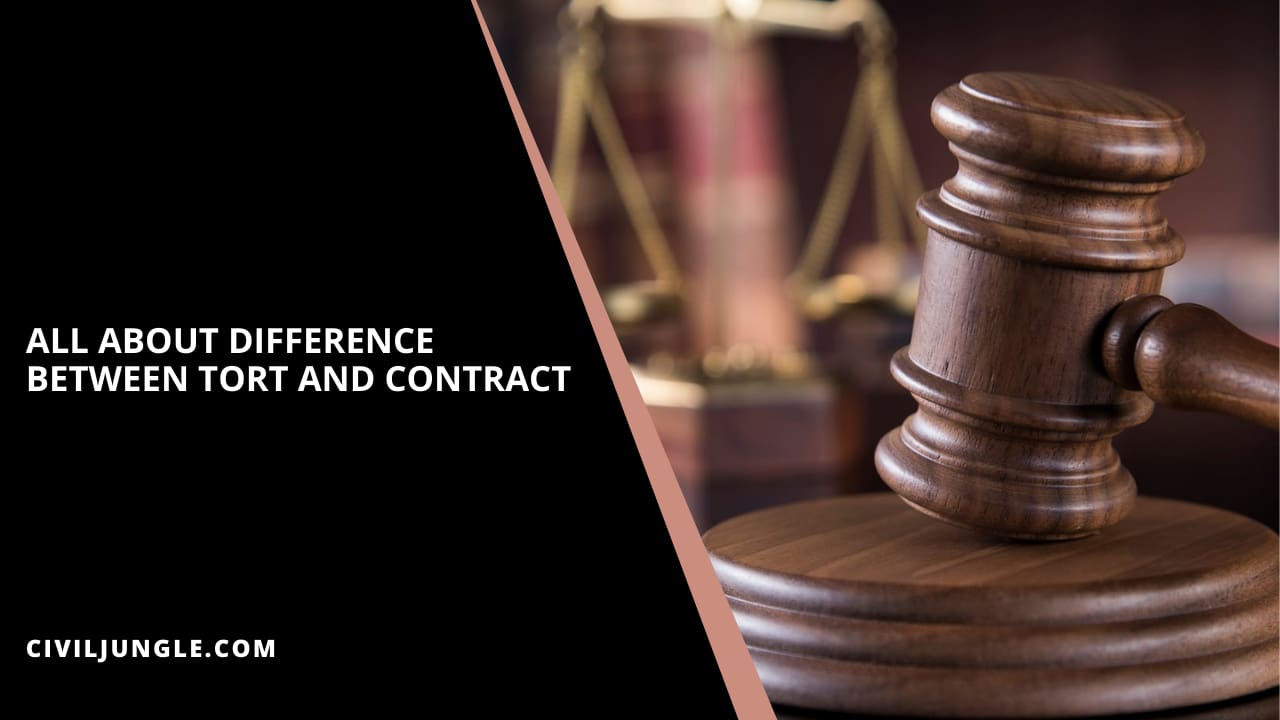
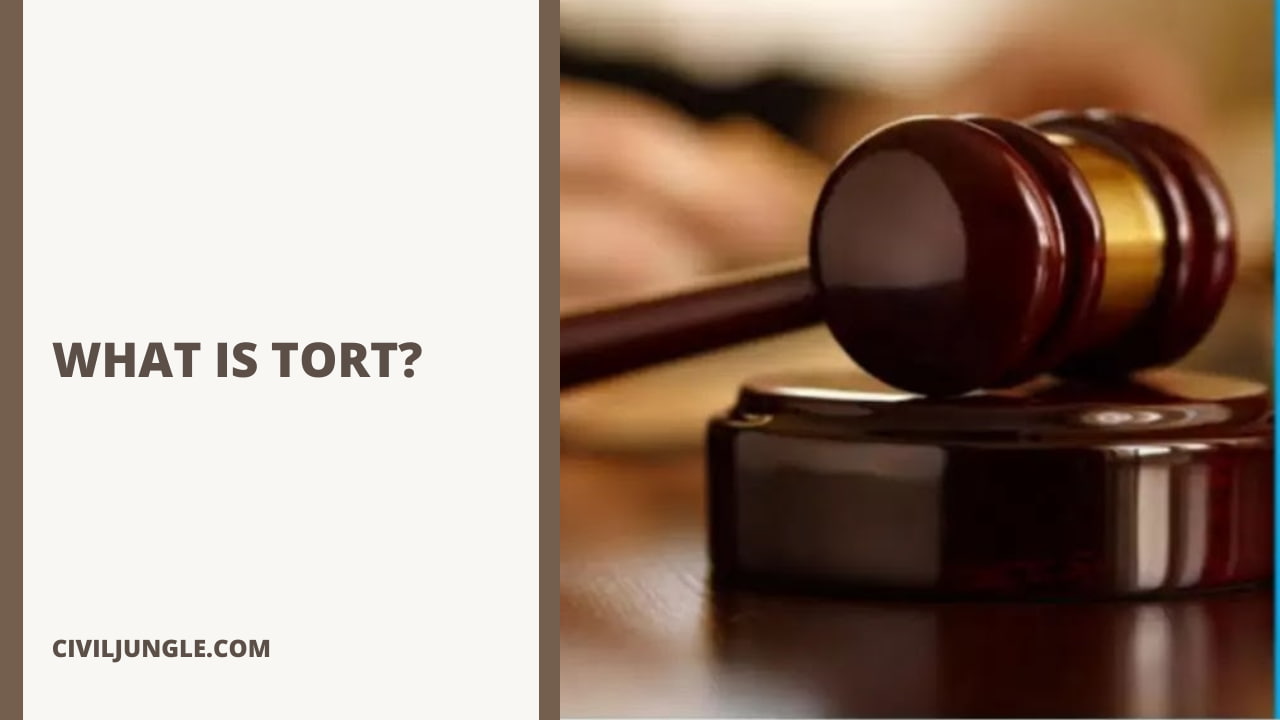

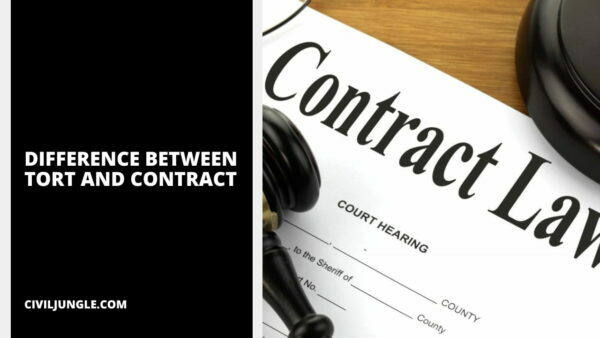
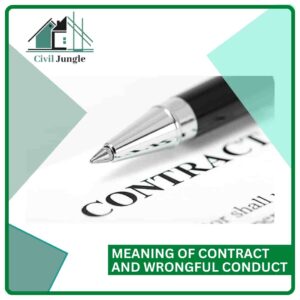






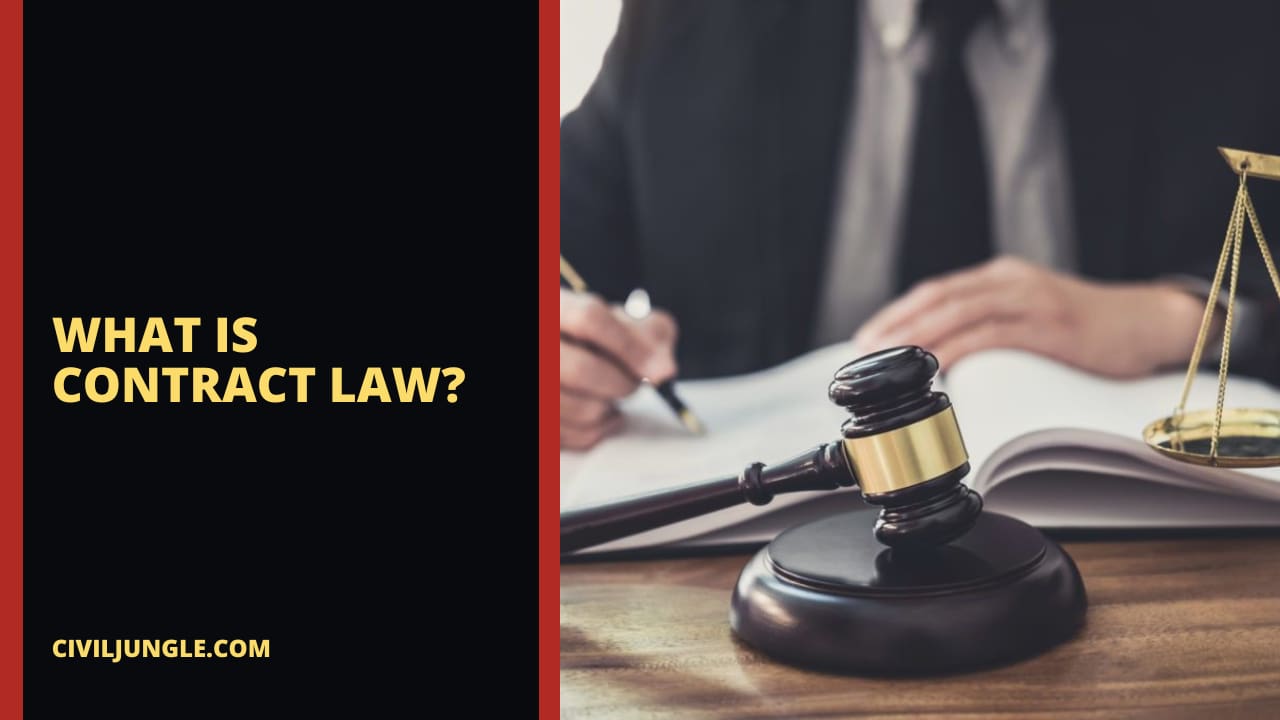



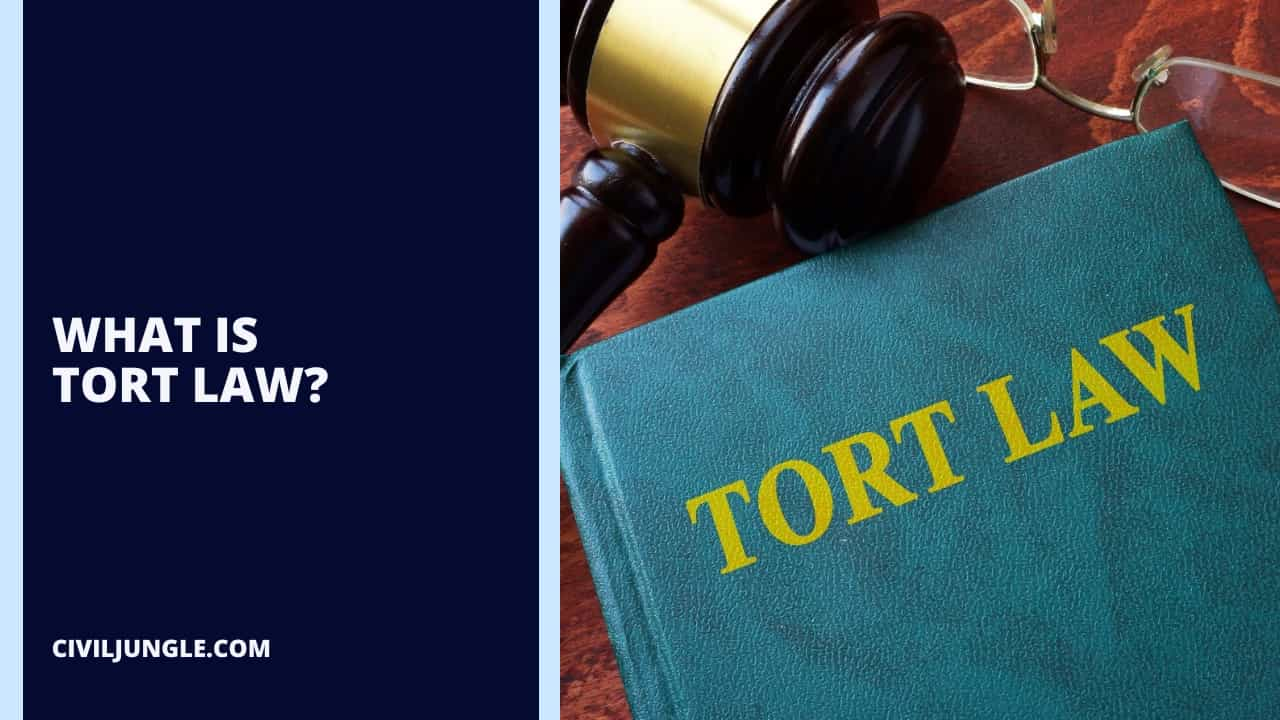




Leave a Reply